The main cause of death in the world is heart disease. They’ve taken off like wildfire, and a lot of it has to do with the time period we live in. We often work too much, sleep too little, eat unhealthy meals, and don’t get enough exercise. Our body often sends us signals that we aren’t aware of. Unfortunately, many people ignore or fail to recognize the indications in a timely manner. Heart problems can show themselves in a number of different ways. The following is a list of 30 red flags that could indicate a serious heart problem. If this is the case, you should seek medical attention immediately.
Fatigue
Fatigue can be a sign of heart disease or a symptom of not getting enough sleep. The volume of blood in a person’s body is lowered during cardiac arrest, causing the heart to work harder. As a result, both during the day and at night, one becomes fatigued. So, if you’re constantly weary for no obvious reason, a trip to the doctor is recommended. Fatigue can sometimes be a symptom of another ailment.

Fatigue
Fainting
It is unquestionably odd to experience frequent fainting. If you’re having difficulties with it on a regular basis, you should see a cardiologist as soon as possible because it could be an indication of heart disease. Loss of consciousness can be caused by intense physical exercise, pain, or dehydration. There are a number of reasons for this, but it could also be an indication of heart disease. This is commonly linked to a reduction in blood pressure, which results in a shortage of oxygen in the blood and causes fainting. It is important that you take it seriously and get medical help.

Fainting
Rapid Weight Gain
Anyone who has recently acquired a lot of weight should assess if it is due to overeating or a sign of a heart problem. One of the symptoms of heart disease is fluid build-up in the body. Swelling and flatulence occur as a result, as well as weight gain. It’s a good idea to keep note of what you consume on a daily basis if you have this symptom. This is how you can tell if your weight gain is related to dieting or not.

Rapid Weight Gain
Nausea And Loss Of Appetite
Nausea, indigestion, and a loss of appetite are some warning indications of a heart attack. If this is a new problem, it’s advisable to keep an eye on it and get medical help if necessary. Other disorders, such as gastritis, can occasionally elicit the same symptoms as heart disease. However, it could be a sign of pregnancy. The doctor has the most expertise.

Nausea And Loss Of Appetite
Irregular Heartbeat
Palpitations can be brought on by a number of things. A rush of adrenaline or a change in attitude are the most common causes. Anyone whose heartbeat is becoming increasingly erratic should seek medical help as soon as possible. An abnormal heartbeat is referred to as arrhythmia in medical terms. Because an arrhythmia can lead to a stroke if left untreated, it’s vital to take the problem seriously. You should visit a doctor if you’re experiencing this symptom.

Irregular Heartbeat
Persistent Coughing
Coughing that just won’t stop can be aggravating. Coughing over an extended period of time can indicate cardiac issues, which many people overlook. When the heart has trouble distributing blood to the rest of the body, some of it may end up in the lungs, resulting in a chronic cough. If you have a cough that produces sputum, the color of the sputum is important to note. Sputum that is pink or white should be avoided at all costs. If your cough worsens when you lie down at night, it could be a sign of heart disease.

Persistent Coughing
Cold Sweat
Cold sweats are the body’s way of sending a warning signal. Sweating is the most common way for the body to regulate its temperature. Your heart has to work harder to push blood through your arteries when you sweat a lot. Anyone who has frequent cold sweats should seek medical attention as soon as possible. Cold sweats can be a sign of a variety of conditions, including heart disease, infection, cancer, and neurological disorders. Medication or stress can also trigger cold sweats.

Cold Sweat
Swelling Of The Legs
Leg swelling is bothersome and annoying. It occurs regularly, particularly during the summer. Swollen legs, on the other hand, should be addressed carefully if they occur regularly, as they could signal heart problems. Edema is commonly caused by fluid retention. The legs and feet are typically the most effected because they are the furthest from the heart and where blood circulates first. If the swelling does not go away or worsens, you should see a doctor very once.
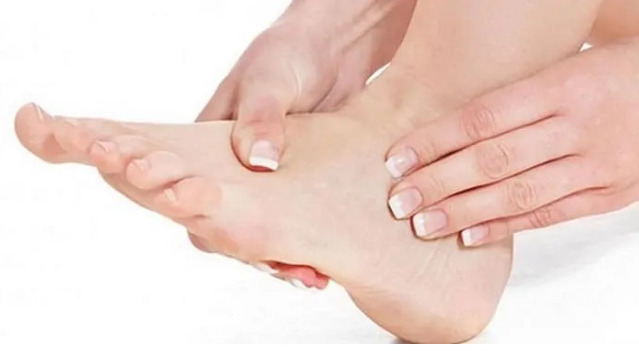
Swelling Of The Legs
Sleeping Disorder
Sleep problems are frequently treatable and do not cause harm. In many cases, however, a heart issue is to blame. As a result, insomnia must be taken seriously because it can lead to a number of health problems. People who have difficulty falling asleep or staying asleep should contact a doctor. Breathing problems during sleeping could indicate a buildup of fluid in the lungs. Chest discomfort is a common cause of palpitations.

Sleeping Disorder
Inflammation of the gums
Gingivitis is typically not a life-threatening condition. If the pain persists, you should see a dentist. Frequently, heart problems are to blame. The initial sign is an inflamed palate, which indicates that there are batteries in the bloodstream. The bacteria can cause blood clots. Many people aren’t aware that dental and cardiovascular health are often linked. It’s vital to have your teeth checked on a regular basis because your oral health has an impact on the rest of your body.
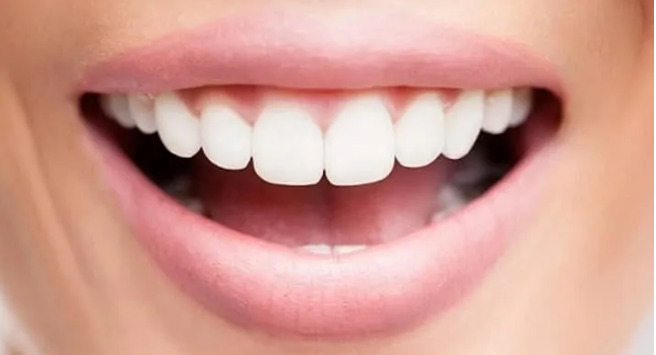
Inflammation of the gums
Snoring
You’re probably not even aware that you’re snoring most of the time. It is only known by those in your close vicinity. Sleep apnea is the medical term for it. It’s a rather typical event these days. For a brief moment, the heart beats before returning to normal. Because those who are affected aren’t aware of their condition, it’s vital to be vigilant and contact the doctor more regularly rather than less frequently. If diagnosed early, cardiac disease can be treated.

Snoring
Pain In The Upper Body And Arms
The first thing that comes to mind when there is discomfort in the upper torso and arms is usually that there is tension. However, it could be a sign of a heart attack. A heart attack’s anguish does not begin at a specific time. The pain usually radiates to the left arm, but depending on the affected area, it might also radiate to the right arm. On a regular basis, you may feel soreness in your mouth or back. Women are less likely than men to recognize the signs of a heart attack.

Pain In The Upper Body And Arms
Shortness Of Breath
Many people feel that shortness of breath is linked to being overweight. But it doesn’t have to be. Getting short of breath, even if you haven’t done anything particularly active, could indicate a panic attack or a heart attack. If your airways and cardiovascular system aren’t working together properly, it could be a sign of a cardiac problem that is occurring or about to occur. The lungs are depleted of air in this case, making breathing difficult.

Shortness Of Breath
Chest Pain
Chest pain is one of the classic warning signs of cardiovascular illness or a heart attack. You should proceed with considerable caution if the pain is accompanied by breathing issues. It is advised to go to the emergency department right away if the pain occurs suddenly and without notice. There are distinct aches and pains. A burning discomfort or a feeling of tightness may occur. A heart attack can be diagnosed if the symptoms begin while you are resting and last for a few minutes. It is vital to get medical assistance as soon as possible.
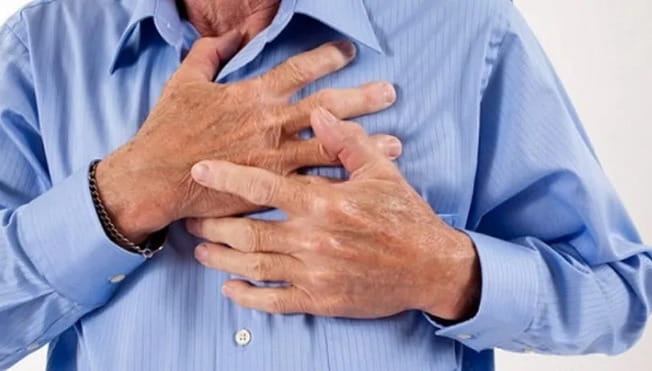
Chest Pain
Open Wounds On The Feet
Open wounds must be attended to on a regular basis since they can easily get infected. Caution should be used if the wounds or ulcers do not heal on their own or are difficult to heal. This could be a sign of aortoiliac disease. The aorta is obstructed with aortic stenosis. As a result of this disease, ischemia, or a reduction in blood and oxygen flow to tissues, can occur. Tissue death and, in the worst-case situation, limb amputation can result.

Open Wounds On The Feet
Pain In The Toes
Toe pain may appear harmless at first glance, but it is not. If you have toe pain while resting and it isn’t caused by tight shoes, you should figure out what’s causing it. This could also be due to aortoiliac occlusive disease. The greatest thing you can do is tell your doctor about your symptoms so that a cardiac disease can be ruled out. This is the only approach to treat a dangerous illness in a timely manner.

Pain In The Toes
Cramps In The Thighs And Buttocks
A magnesium deficiency is a common cause of cramping. Extreme exertion, whether cold or vigorous, can result in cramping. It is, however, commonly accompanied by a heart problem. You should visit a doctor if you feel severe discomfort or cramps in your thighs, buttocks, or calves during walking. It could be a sign of aortoiliac occlusive disease, according to the University of Pittsburgh Medical Center (UPMC). In this scenario, a doctor can provide assurance.

Cramps In The Thighs And Buttocks
No Hairgrowth On The Legs
A lack of hair development on the legs can indicate peripheral arterial disease. In this cardiovascular disease, plaque builds up in the arteries and inhibits blood flow to the limbs. According to the McLeod Health Service in South Carolina, hair loss on the legs is one indicator. It could be a sign of heart disease if your hair starts to come out unexpectedly.

No Hairgrowth On The Legs
Sputum When Coughing
Coughing up phlegm on a frequent basis can indicate a health problem. The color of the sputum is important in this case. If the color is pinkish-white, it could indicate a build-up of fluid in the lungs. It’s a common sign of heart disease, according to the American Heart Association. It’s usually only a minor cold, but you should see a doctor to be sure. They’ll run testing to figure out what’s causing the pain and rule out the worst-case scenario.

Sputum When Coughing
Interrupted Sleep
You should avoid drinking too much before going to bed if you wake up frequently at night to use the restroom, but you should keep an eye on the problem. If the condition does not improve, a doctor should be sought. According to the Mayo Klinik, an increased desire to urinate is an indication of heart failure. If you wish to rule out this possibility, you should consult a doctor for a check-up and not ignore it.

Interrupted Sleep
Chest Discomfort
Chest discomfort can be caused by a variety of circumstances. Reflux can occur after consuming fatty foods, for example. If chest discomfort persists, it may be a warning that a heart attack is imminent. The American Heart Association recommends seeing a doctor or maybe going to the emergency room as a precaution rather than waiting for the discomfort to go away on its own. It’s all too easy to ignore the signs of a heart attack, and help is sometimes delivered too late.
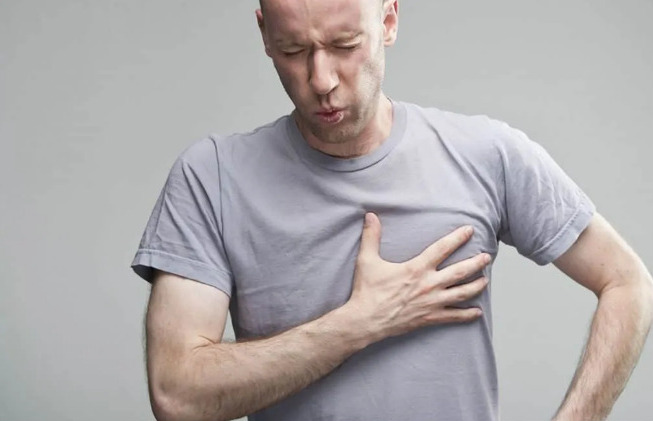
Chest Discomfort
Erectile dysfunction
Erectile dysfunction may be quite distressing for men. One of the causes of erectile dysfunction is a heart issue. According to Harvard Medical School, an erection demands increased blood supply. When arteries stiffen, blood flow is disrupted. It is vital and prudent to seek medical guidance if you or your companion suffers from erectile dysfunction. If necessary, he will refer you to a professional. Other diseases can be ruled out if they are treated promptly.

Erectile dysfunction
Confusion And Forgetfulness
Forgetfulness and perplexity can be caused by a variety of factors. Variations in sodium levels can be induced by the presence of specific compounds in the blood, according to the American Heart Association. This leads to both confusion and memory loss. Malnutrition, tiredness, and a vitamin and mineral shortage can all contribute to the problem. Of course, it’s best to rule out heart disease and seek medical counsel because only a doctor can do the necessary tests to rule out or avoid worsening.

Confusion And Forgetfulness
Sleep Apnea
Forgetfulness and bewilderment can result from a variety of factors. According to the American Heart Association, changes in sodium levels can be produced by certain molecules in the blood. As a result, there’s confusion and memory loss. Malnutrition, exhaustion, and a deficiency in vitamins and minerals can also cause the disease. Of course, it is advisable to rule out cardiac problems and seek medical help, since only a doctor can do the necessary tests to rule out or avoid a worsening of the situation.

Sleep Apnea
Panic Attacks
Because the symptoms of heart attacks and panic attacks are so similar, they are readily confused. Discomfort, shortness of breath, dread, a tight chest, and sweat are all symptoms of both. Increased heart rate, dizziness, and physical weakness are all signs of a heart attack or panic attack. It’s critical to state unequivocally that this is not a heart attack. Whether it’s a panic attack or something else, a medical diagnosis can help and the problem can be addressed.

Panic Attacks
Sudden Tenderness In The Breast
Pain and chest tightness can be signs of a heart attack on the way. Atrial fibrillation causes a smooth and unpleasant sensation in the chest. If you believe this is the case, you should consult a doctor as soon as possible. Stroke risk is higher in people with atrial fibrillation. You should not waste time and should act as quickly as possible. Even if the problem occurs seldom, you should see a doctor.

Sudden Tenderness In The Breast
Difficulty Of Breathing
If you have breathing problems, it’s a risky condition to have, especially when you’re sleeping. Because your muscles relax when you sleep, you should have no trouble breathing. If you’re having trouble sleeping, lying down, or even breathing, you should see a doctor as soon as possible. Heart disease can develop when there is no other circulation and blood gathers in the veins, according to the American Heart Association. This creates moisture in the lungs as well as heart problems.

Difficulty Of Breathing
Sudden Migraine
Migraines are no longer uncommon. Migraines, on the other hand, can be caused by a variety of factors. Many people are unaware that migraines might be a symptom of heart trouble. This type of discomfort could indicate a stroke or even blood clotting. If you’re experiencing nausea, dizziness, or vomiting in addition to pain, don’t waste any time and go to the emergency room right away. Every minute is counted here.

Sudden Migraine
Back Pain
Unfortunately, many people today are experiencing back pain. It has now become a widespread ailment. Back discomfort, on the other hand, can be an indication of heart problems, which many people are unaware of. It can be a sign of an impending heart attack if the discomfort is in the lower or upper back or starts in the chest. Women, in particular, have a harder time noticing signs and symptoms than men. Only a doctor can help you, whether you have a heart ailment or an orthopedic problem.

Back Pain
Diet is also an important element in preventing heart attacks! Learn about meals that will strengthen your health and keep you from having a heart attack.
Coffee
We understand why many people don’t feel ready for the day if they don’t drink from Joe’s cup. Thankfully, studies have shown that drinking coffee in moderation can help avoid heart disease, stroke, and heart failure! This is the ideal time to pay a visit to your favorite coffee shop.
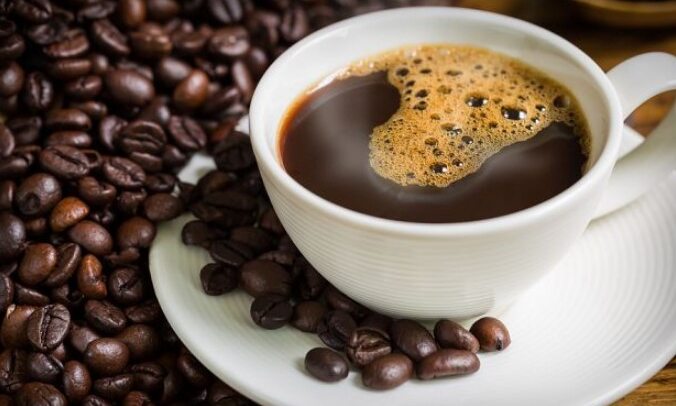
Coffee
Cranberries
Everybody knows how fresh and delicious cranberries are when added to juice, but not many people know that the fruit is packed with antioxidants and nutrients. Another fantastic fruit that lowers the risk of heart disease. Cranberries also effectively protect stomach ulcers, urinary tract infections, gum disease, and cancer. Furthermore, a cause to stock up on this delectable superfruit!

Cranberries
Figs
Figs can be eaten in a variety of ways, but are best eaten raw. You can eat the whole fruit, just chop off the stem and taste the sweet and exquisite deliciousness. Figs are high in nutrients and have various health benefits, including supporting digestion, reducing the risk of heart disease, and controlling blood sugar levels. Figs also include heart disease.

Figs
Flax Seeds
Omega-3 fatty acids, also known as “healthy fat,” are abundant in these seeds. People who don’t like fish or nuts don’t have to worry about Omega 3 because flax seeds that explode with it can be eaten instead. Use a spoonful of flax seeds in your smoothies, fruit bowls, and salads to reap the benefits of the superfoods’ nutrients, antioxidants, and estrogen.
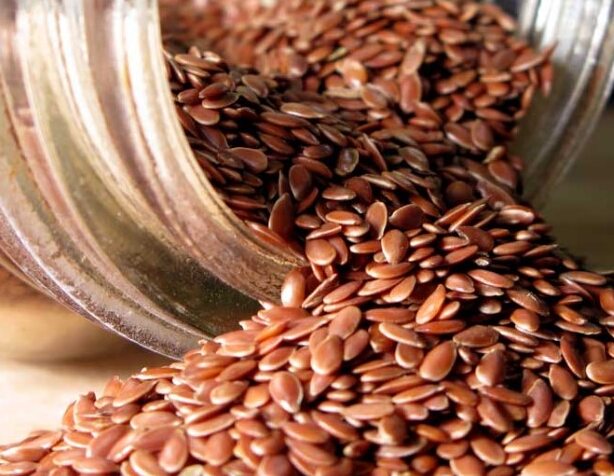
Flax Seeds
Red Hot Chili Peppers
The combative small veggies that include capsaicin, a chemical that can help lower cholesterol and blood pressure, are on the list, not because of the rock band, but because of the combative little veggies that contain capsaicin, a compound that can help lower cholesterol and blood pressure. Although eating whole raw peppers can be beneficial to your heart, you may want to reconsider. It was attempted by the man in the photo below, but it did not go well for him…

Red Hot Chili Peppers
Ginger
This is excellent news for ginger enthusiasts. More than just a delectable aroma and flavor may be found in this cooking area. According to study, it can also aid in the management of your heart health. Ginger consumption appears to lower the risk of high blood pressure and protect against coronary heart disease. Furthermore, because ginger pairs well with sushi, you won’t feel guilty if you order a large serving the next time you dine at your favorite Japanese restaurant.

Ginger
Grapefruit
Grapefruit is a fantastic fruit that has a lot more to give than just a refreshing flavor and aroma; it’s also loaded with nutrients! This fruit is high in vitamin C, potassium, lycopene, fiber, and choline. That’s right, frequent grapefruit consumption will improve your cardiovascular health. Grapefruit is also a part of the DASH diet, which is a blood pressure-lowering eating regimen.

Grapefruit
Green Tea
Is there anything you’d want to drink to satisfy your thirst? Then drink some green tea, a fantastic antioxidant-rich super drink. The powerful chemical helps to keep plaque from forming on artery walls. Green tea can also help lower triglycerides, cholesterol, and LDL levels in the body.
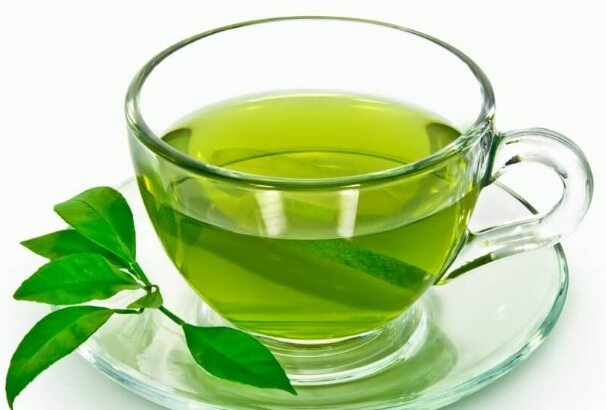
Green Tea
Kidney Beans
Make your savory meals more flavourful by adding kidney beans! Kidney beans are an excellent addition since they are low in fat and high in fiber, both of which are beneficial to heart health and memory. Magnesium, folate, and protein, as well as other vitamins and minerals, are abundant in them. Reduced homocysteine levels and a lower risk of diabetes, heart attacks, strokes, peripheral vascular disease, and cancer are among the other health benefits of kidney beans.
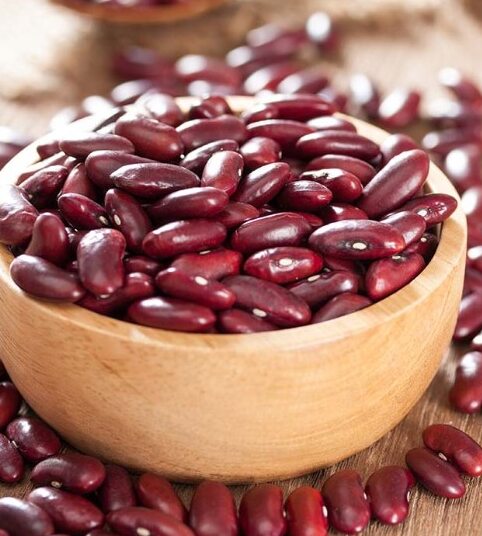
Kidney Beans
Oranges
Purchase some oranges to kickstart your new health regimen. They’re high in vitamin C, minerals, and fiber, as well as a delicious and refreshing way to quench your thirst. The potassium in the fruit aids in the removal of salt from the body, the reduction of blood pressure, and the neutralization of proteins that are harmful to the heart. The high pectin component of oranges also aids in cholesterol absorption from the diet.

Oranges
Kale
The idea that kale is one of the cabbage family’s most hardy members doesn’t change the fact that it’s not always easy to come by. Because it has a variety of nutrients that are essential to heart health, your efforts in procuring the vegetable will be rewarded. In case you didn’t know, kale is good for your heart because to its fiber, antioxidants, and omega-3 fatty acids. Kale has a low calorie and fat content, making it a great addition to any meal! It’s likely that millennials are onto something when it comes to kale.
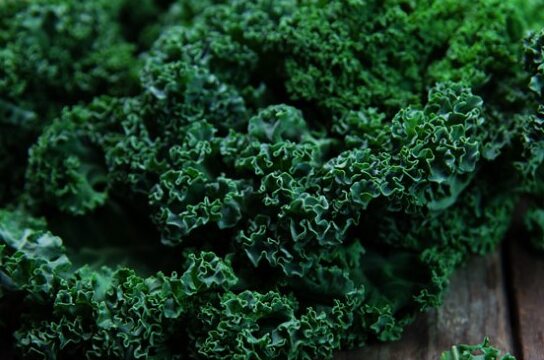
Kale
Garlic
Garlic has gained reputation as a vampire repellent, but few people are aware of its heart-healthy advantages. It’s been used to add flavor to a variety of recipes for a long time, and studies have shown that it can also help keep your heart healthy. Garlic can aid in lowering blood pressure, preventing blood vessel constriction, and reducing plaque formation in arteries, among other things. If you don’t like the flavor of garlic, you can take it as a tablet.

Garlic
Red Wine
You can breathe a sigh of relief now that you don’t have to completely cut alcohol out of your diet. Drinking red wine in moderation is good for your heart. Adding wine to your supper or drinking a glass of it can make blood vessels more flexible, which helps to prevent blood clots. Red wine can also raise HDL levels and lower the risk of coronary heart disease. Who are we to argue with medical experts who recommend this?

Red Wine
Chocolate
You may believe that chocolate is only used in sweet foods, but it is now used in a variety of savory meals as well. Dark chocolate, which has a high cocoa content, gets a bad record for raising your risk of diseases like diabetes, but it actually has health benefits. Dark chocolate may aid in the reduction of blood pressure and the risk of heart disease.

Chocolate
Lentils
Lentils are beans that not only adds taste to any dish, but also provides health benefits. It’s been proven that eating a diet rich in lentils, beans, and other legumes lowers the risk of heart disease and stroke. Lentils are also strong in protein, potassium, and magnesium, all of which assist to lower blood pressure, cholesterol, and the risk of blood vessel plaque buildup.
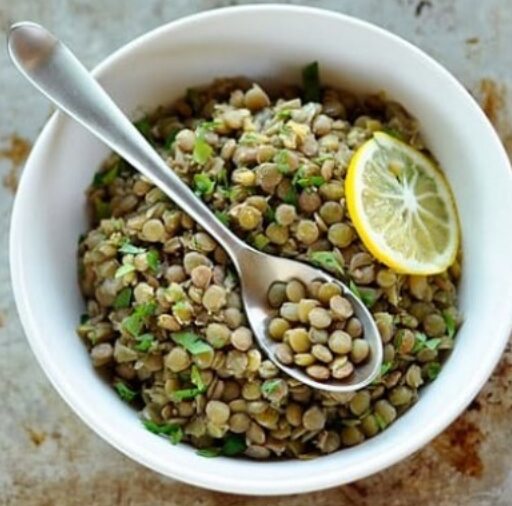
Lentils
Almonds
We don’t know about you, but almonds are one of our favorite foods. This nut also contains many nutrients that can help you boost your cognitive abilities as well as reduce your chances of heart disease and diabetes. A handful of almonds can lower cholesterol, inhibit the absorption of harmful LDL, and reduce the risk of cardiovascular disease.
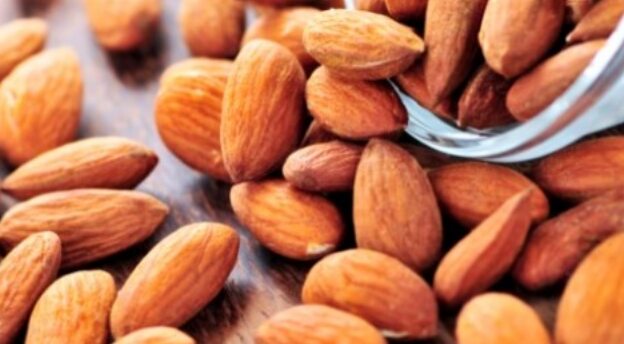
Almonds
Pomegranates
Do you want to spruce up your salad, shake, or smoothie with some zing? Make sure you get some pomegranates after that. The fruit includes an antioxidant combination that protects artery walls from plaque development and reduces the risk of heart disease. Studies have shown that this superfood can help prevent diabetes, strokes, Alzheimer’s, and prostate cancer. It also helps to keep your liver, joints, teeth, and skin in good shape.
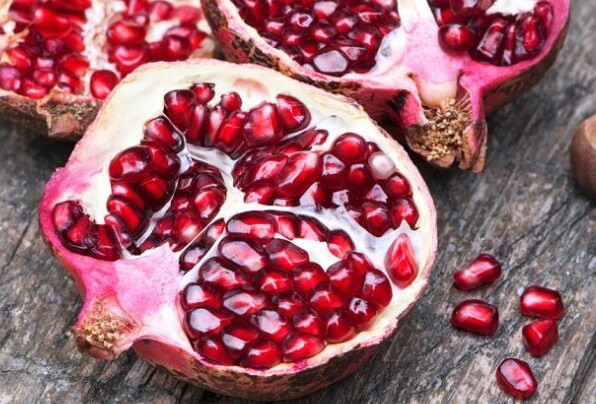
Pomegranates
Blueberries
Blueberries are high in nutrients and antioxidants, in case you didn’t know. According to study, eating three servings of fruit and other berries per week can help lower blood pressure, lower cholesterol, and remove plaque development on arterial walls. The delicious fruit also helps to avoid heart disease and cancer.
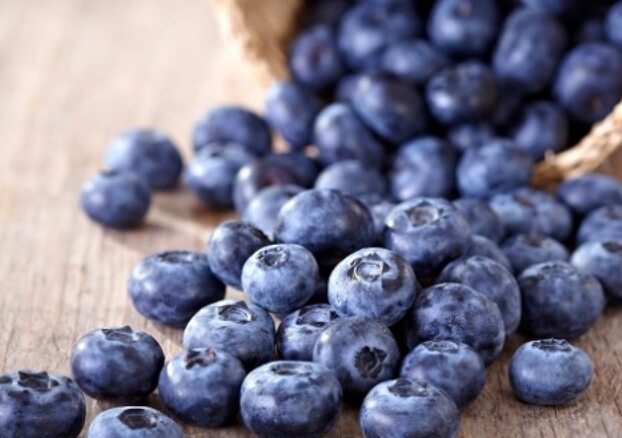
Blueberries
Beets
Beets are colorful, crisp, and delicious salad toppings that are also high in vitamins, minerals, and antioxidants including betaine and folate, a B vitamin. Beets are also known to help the body lower homocysteine levels. The superfood is on this list because it lowers the risk of heart disease and has other superpowers like infection prevention and organ strengthening.
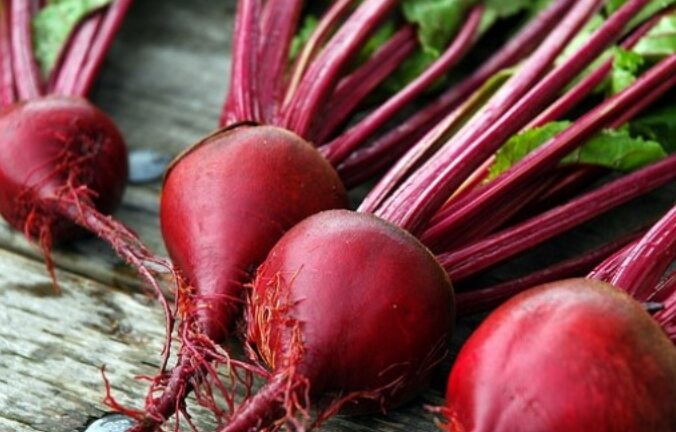
Beets
Salmon
Everyone’s favorite fish appears to be salmon. This isn’t surprising, given how nicely it complements salads, sushi, and just about any other dish. Salmon is packed with omega-3 fatty acids, vitamins, and minerals. Lowering triglyceride levels, loosening constricted blood arteries, avoiding blood clots, and preventing cardiovascular disease are all benefits of the “sea chicken.”
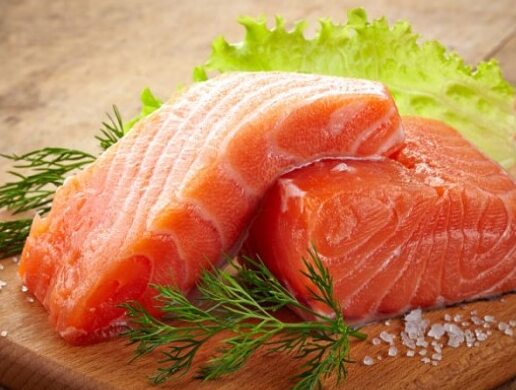
Salmon
